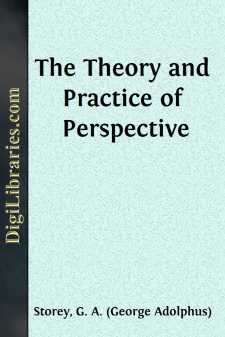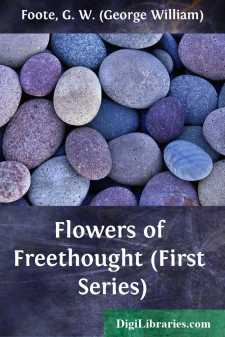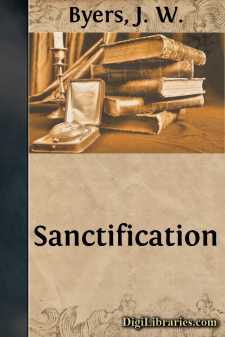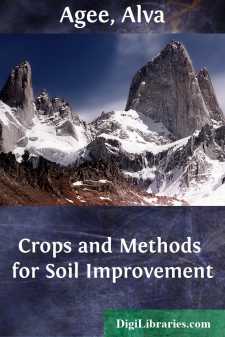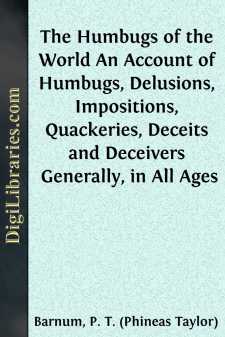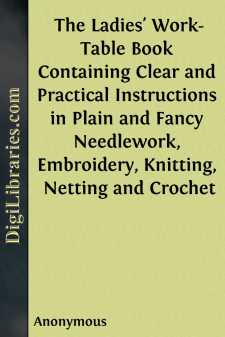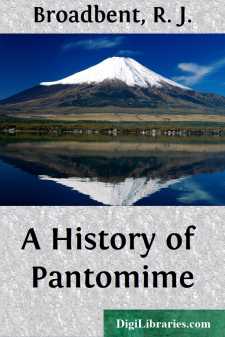Non-Classifiable
- Non-Classifiable 1768
Non-Classifiable Books
Sort by:
by:
William Godwin
PREFACE. The public are here presented with the last literary attempt of an author, whose fame has been uncommonly extensive, and whose talents have probably been most admired, by the persons by whom talents are estimated with the greatest accuracy and discrimination. There are few, to whom her writings could in any case have given pleasure, that would have wished that this fragment should have been...
more...
THE NECESSITY OF THE STUDY OF PERSPECTIVE TO PAINTERS, SCULPTORS, AND ARCHITECTS Leonardo da Vinci tells us in his celebrated Treatise on Painting that the young artist should first of all learn perspective, that is to say, he should first of all learn that he has to depict on a flat surface objects which are in relief or distant one from the other; for this is the simple art of painting. Objects...
more...
PREFACE. Heinrich Heine called himself a soldier in the army of human liberation. It was a modest description of himself, for he was more; his position was that of a leader, and his sword was like the mystic Excalibur, flashing with the hues of his genius, and dealing death to the enemies of freedom. Humbler fighters than Heine may count themselves as simple soldiers in that great army, whose...
more...
by:
J. W. Byers
What is Sanctification? Scripturally, the word sanctification has three meanings: First, separation; second, dedication; third, spirit-filling. Webster's definition of it is as follows: "1. Sanctification is the act of God's grace by which the affections of man are purified, or alienated from sin and the world, and exalted to a supreme love of God; also, the state of being thus purified...
more...
by:
Joseph Wild
PREFACE. The following Discourses are presented to the public in book form, agreeable to the request of numerous friends. I have selected twenty from one hundred and thirty which I have given to my own congregation during the past three years. I have tried to have them lean one against another, to the end that the argument might be continuous and somewhat complete. The reader will remember,...
more...
by:
Alva Agee
INTRODUCTION —This book is not a technical treatise and is designed only to point out the plain, every-day facts in the natural scheme of making and keeping soils productive. It is concerned with the crops, methods, and fertilizers that favor the soil. The viewpoint, all the time, is that of the practical man who wants cash compensation for the intelligent care he gives to his land. The farming that...
more...
One of Mr. Barnum’s secrets of success is his unique methods of advertising, and we can readily understand how he can bear to be denounced as a “Humbug,” because this popular designation though undeserved in the popular acceptation of it, “brought grist to his mill.” He has constantly kept himself before the public—nay, we may say that he has been kept before the public constantly, by the...
more...
by:
Anonymous
INTRODUCTION. If it be true that “home scenes are rendered happy or miserable in proportion to the good or evil influence exercised over them by woman—as sister, wife, or mother”—it will be admitted as a fact of the utmost importance, that every thing should be done to improve the taste, cultivate the understanding, and elevate the character of those “high priestesses” of our domestic...
more...
by:
Candace Wheeler
HOME INDUSTRIES AND DOMESTIC MANUFACTURES. The subject of Home Industries is beginning to attract the attention of those who are interested in political economy and the general welfare of the country, and thoughtful people are asking themselves why, in all the length and breadth of America, there are no well-established and prosperous domestic manufactures. We have no articles of use or luxury made in...
more...
by:
R. J. Broadbent
CHAPTER I. Origin of Pantomime. From the beginning of all time there has been implanted in the human breast the Dramatic instinct full of life and of vigour, and finding undoubtedly its outlet, in the early days of civilization, if not in the Dramatic Art then in the poetry of motion with that necessary and always essential concomitant of both—Pantomime. Indeed, of the Terpsichorean Art, it has been...
more...



